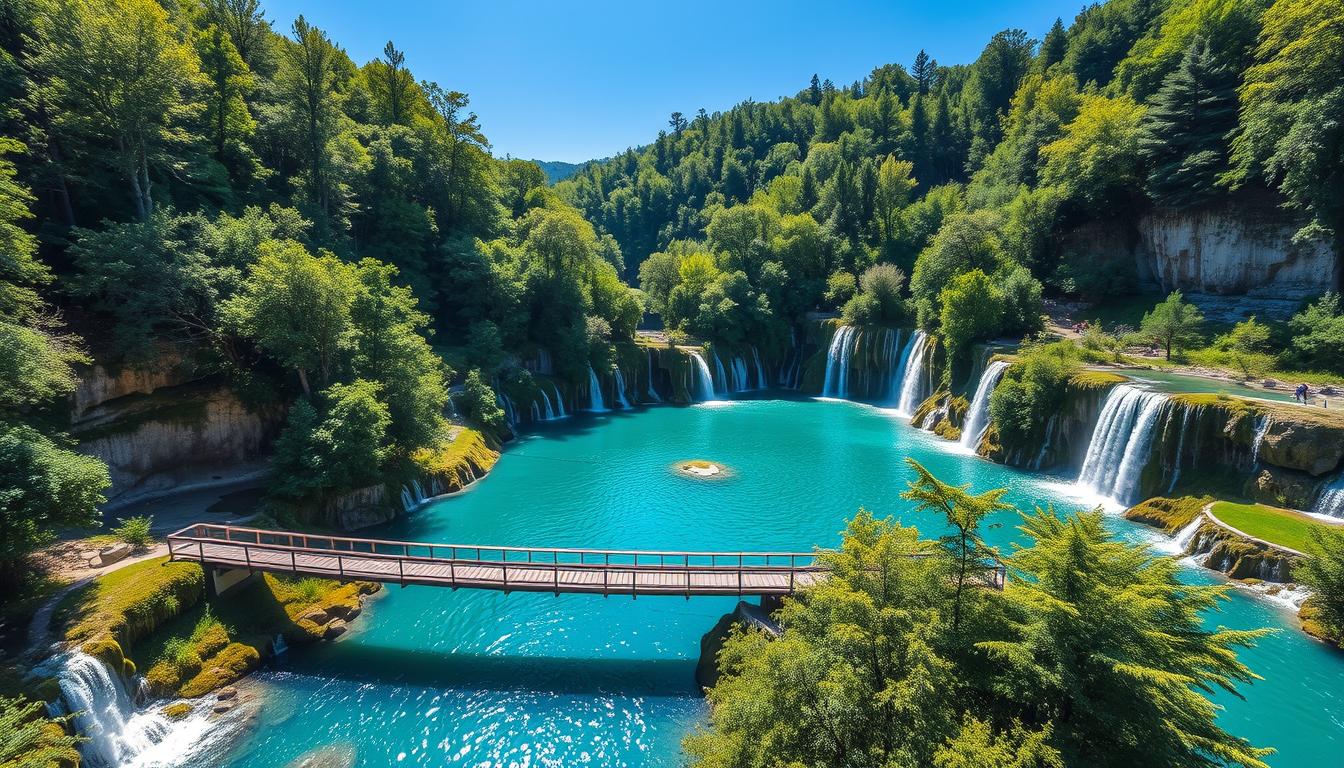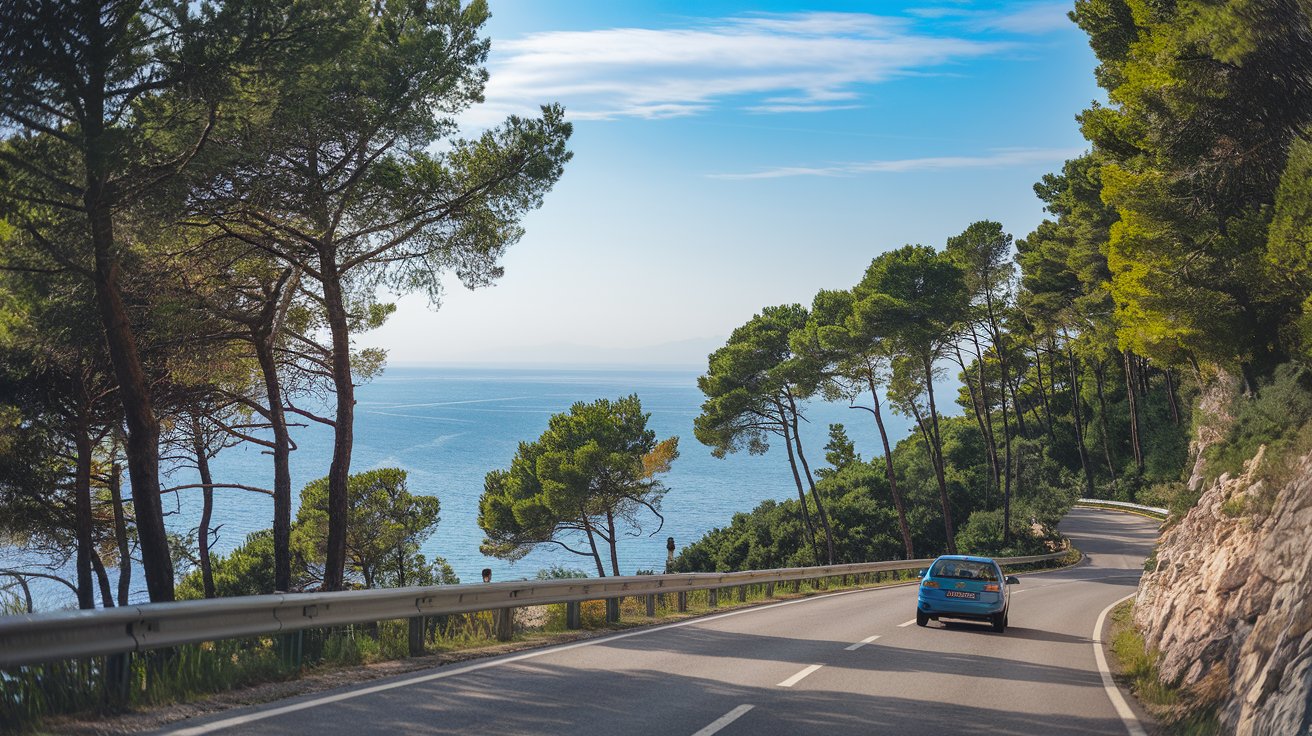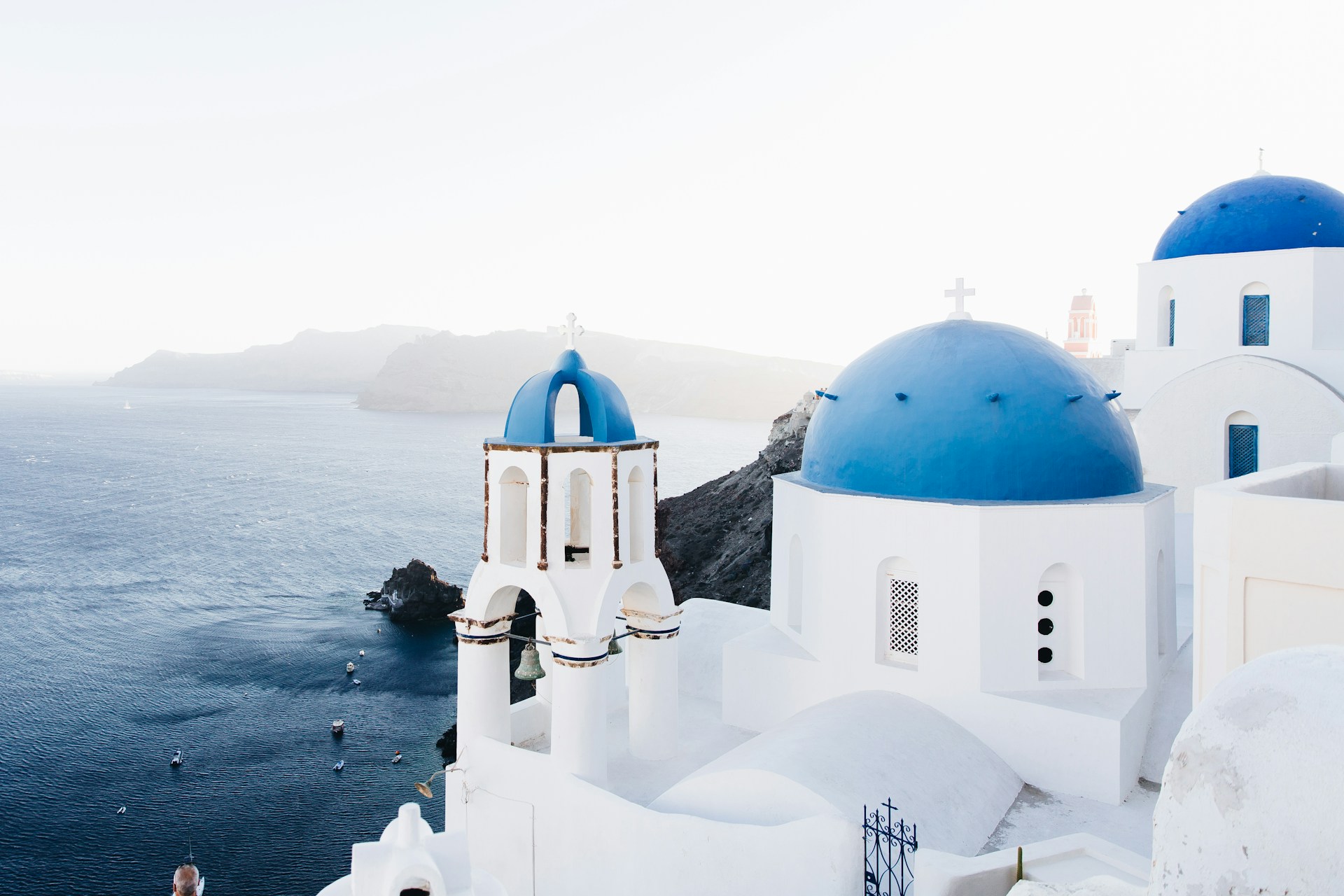
The 10 Most Stunning National Parks in Croatia: Trails, Tips & Must-See Attractions
Croatia’s natural beauty extends far beyond its famous coastline and historic cities. Tucked between the Adriatic Sea and the Dinaric Alps, this European gem harbors some of the continent’s most spectacular national parks. From cascading waterfalls and crystal-clear lakes to rugged mountain ranges and pristine islands, Croatia’s protected areas showcase nature at its most magnificent.
Whether you’re an avid hiker, a wildlife enthusiast, or simply someone who appreciates breathtaking landscapes, these ten stunning national parks offer unforgettable experiences throughout the year. Each park has its own unique character, diverse ecosystems, and remarkable features waiting to be explored. Join us as we journey through Croatia’s most beautiful natural treasures.
1. Plitvice Lakes National Park

As Croatia’s oldest and most visited national park, Plitvice Lakes deserves its reputation as a natural wonder. This UNESCO World Heritage site features a spectacular system of 16 interconnected lakes arranged in cascades and separated by natural travertine dams. The lakes change color throughout the day, shifting between azure, green, gray, and blue depending on the mineral content and sunlight.
Must-See Attractions
- The Great Waterfall (Veliki Slap) – the park’s tallest waterfall at 78 meters
- Upper Lakes (Gornja Jezera) – twelve lakes in the limestone canyon
- Lower Lakes (Donja Jezera) – four lakes in the limestone canyon
- Wooden walkways that wind directly over the water
- Kozjak Lake – the largest and deepest lake in the park
Best Hiking Trails
Plitvice offers eight different hiking routes of varying lengths and difficulty:
- Route A (2-3 hours, easy) – Covers the Lower Lakes with views of the Great Waterfall
- Route C (4-6 hours, moderate) – Explores both Upper and Lower Lakes
- Route K (6-8 hours, challenging) – The most comprehensive trail covering all major lakes and viewpoints
Ideal Seasons to Visit
While Plitvice is open year-round, each season offers a unique experience:
- Spring (April-June) – Abundant water flow creates powerful waterfalls; fewer crowds than summer
- Autumn (September-October) – Spectacular foliage colors and moderate crowds
- Winter (December-February) – Magical frozen waterfalls and snow-covered landscapes; significantly fewer visitors
Summer brings the largest crowds, so early morning visits are recommended if traveling between July and August.
2. Krka National Park

Located along the Krka River in southern Croatia, Krka National Park is renowned for its series of seven stunning waterfalls. Unlike Plitvice, Krka allows visitors to swim in designated areas, making it particularly popular during summer months. The park’s unique ecosystem supports over 850 plant species and diverse wildlife.
Must-See Attractions
- Skradinski Buk – the longest and most visited waterfall on the Krka River
- Roški Slap – the “vast waterfall” with its unique “necklace” cascades
- Visovac Island – home to a 15th-century Franciscan monastery
- Medieval fortresses – Trošenj and Nečven
- Ethnographic exhibits and restored water mills
Best Hiking Trails
- Skradinski Buk Trail (1.5 hours, easy) – A circular wooden pathway around the most famous waterfall
- Stinice-Roški Slap-Oziđana Pećina (4 hours, moderate) – Leads to Oziđana cave with prehistoric findings
- Lozovac-Skradinski Buk (3.5 km, easy) – Scenic walk from the main entrance to the falls
Ideal Seasons to Visit
- Late spring (May-June) – Strong water flow and fewer crowds than peak summer
- Early autumn (September) – Still warm enough for swimming with reduced crowds
- Winter – Dramatically reduced visitor numbers but swimming is not possible
Note that swimming at Skradinski Buk is prohibited during peak season (July-August) due to overcrowding.
3. Mljet National Park

Often called Croatia’s greenest island, Mljet is a paradise of untouched nature. The national park covers the western third of the island and features two saltwater lakes – Veliko and Malo Jezero (Large and Small Lake) – connected to the sea by a narrow channel. Dense pine forests, olive groves, and vineyards create a lush Mediterranean landscape.
Must-See Attractions
- St. Mary’s Island with its 12th-century Benedictine monastery
- Veliko Jezero (Great Lake) – perfect for swimming and kayaking
- Malo Jezero (Small Lake) – quieter and more secluded
- Odysseus Cave – linked to Greek mythology
- Pristine beaches along the coastline
Best Hiking Trails
- Lakes Circuit (9 km, easy to moderate) – Loops around both saltwater lakes
- Montokuc Trail (moderate) – Leads to a viewpoint with panoramic vistas of the park
- Pomena to Polače Path (3.5 km, easy) – Scenic coastal walk between two main settlements
Ideal Seasons to Visit
- Late spring (May-June) – Pleasant temperatures and blooming vegetation
- Early autumn (September-October) – Warm sea temperatures and fewer tourists
- Summer – Ideal for swimming but expect more visitors
The park is less accessible during winter months when ferry connections are reduced.
Essential Gear for Croatian National Parks: Hiking Backpack

When exploring the diverse terrains of Croatia’s national parks, a reliable hiking backpack is essential. From the wooden walkways of Plitvice to the rocky trails of Mljet, you’ll need something comfortable that can carry water, snacks, extra layers, and camera equipment.
Look for a backpack with 30-45 liter capacity, padded shoulder straps, multiple compartments, and water resistance. The varied Croatian landscapes demand versatility – you might start your day in humid forest conditions and end up on exposed mountain ridges.
4. Paklenica National Park

Located in the southern Velebit mountain range, Paklenica National Park is characterized by two impressive limestone gorges – Velika (Big) and Mala (Small) Paklenica. With over 150 km of trails and 400+ climbing routes, it’s a paradise for hikers and rock climbers. The park’s dramatic landscape transitions from coastal to alpine zones within just a few kilometers.
Must-See Attractions
- Velika Paklenica Canyon – impressive limestone walls reaching 400m
- Manita Peć Cave – spectacular stalactites and stalagmites
- Anića Kuk – a 350m rock face popular with climbers
- Paklenica Mill – restored traditional water mill
- Velebit Mountain peaks with panoramic views
Best Hiking Trails
- Velika Paklenica Canyon to Paklenica Mountain Hut (2 hours, moderate) – The most popular trail
- Manita Peć Cave Trail (1.5 hours, moderate) – Leads to the impressive cave
- Velebit Peak Trail (6-8 hours, challenging) – For experienced hikers seeking summit views
Ideal Seasons to Visit
- Spring (April-June) – Mild temperatures and blooming vegetation
- Autumn (September-October) – Clear visibility and comfortable hiking conditions
- Summer mornings – Start early to avoid afternoon heat in the canyons
Winter visits are possible but require proper equipment and experience for potential snow and ice conditions.
5. Risnjak National Park

Located in the mountainous region of Gorski Kotar, Risnjak National Park is one of Croatia’s less-visited treasures. Named after the lynx (ris) that inhabits its forests, this park offers pristine wilderness with minimal tourist infrastructure. Its diverse habitats range from dense forests to karst formations and alpine meadows.
Must-See Attractions
- Risnjak Mountain peak (1,528m) – offering panoramic views
- Source of the Kupa River – a turquoise pool emerging from karst
- Leska educational trail – showcasing forest ecosystems
- Snježnik peak – the second-highest mountain in the park
- Traditional mountain villages on the park’s periphery
Best Hiking Trails
- Risnjak Summit Trail (5-6 hours, challenging) – From Crni Lug to the mountain peak
- Kupa River Source Trail (2 hours, easy) – Circular path to the river’s origin
- Leska Educational Path (1 hour, easy) – Perfect for families and nature learning
Ideal Seasons to Visit
- Late spring (May-June) – Wildflowers in bloom and active wildlife
- Summer (July-August) – Pleasant temperatures at higher elevations
- Early autumn (September) – Spectacular foliage colors
Winter brings heavy snow, making the park accessible primarily to experienced winter hikers and snowshoers.
6. Northern Velebit National Park

Northern Velebit National Park protects the most valuable and attractive areas of the northern section of Velebit mountain. Known for its exceptional biodiversity, the park features a remarkable mix of karst formations, deep pits, mountain peaks, and meadows. The stark contrast between barren rocky landscapes and areas of lush vegetation creates a unique visual experience.
Must-See Attractions
- Premužić’s Trail – an engineering marvel cutting through the mountain ridge
- Velebit Botanical Garden – showcasing the region’s rich flora
- Zavižan – the highest meteorological station in Croatia
- Hajdučki and Rožanski Kukovi – strict nature reserve with bizarre rock formations
- Alan – traditional shepherd settlements with stone houses
Best Hiking Trails
- Premužić’s Trail (57 km total, sections can be hiked separately, moderate) – The park’s most famous path
- Zavižan to Veliki Zavižan Peak (2 hours, moderate) – Offers spectacular views
- Alan to Štirovača (4-5 hours, moderate to challenging) – Through diverse landscapes
Ideal Seasons to Visit
- Summer (June-September) – Most trails are accessible and weather is generally stable
- Late spring (May) – Wildflowers in bloom but some snow may remain at higher elevations
- Early autumn (September-early October) – Clear visibility and fewer visitors
The park is largely inaccessible during winter months due to heavy snowfall and harsh conditions.
Essential Gear for Croatian National Parks: Lightweight Camping Tent

For the full Croatian national park experience, consider camping under the stars. Parks like Northern Velebit and Paklenica offer designated camping areas where you can immerse yourself in nature. A quality lightweight tent is essential for these adventures.
Look for a 2-3 person tent with weatherproof construction, good ventilation, and easy setup. Croatian mountain weather can change quickly, so water resistance and wind stability are crucial features. A freestanding design gives you flexibility on rocky or uneven terrain common in karst landscapes.
7. Kornati National Park

Often described as a “nautical paradise,” Kornati National Park encompasses 89 uninhabited islands, islets, and reefs in the northern part of Dalmatia. The stark beauty of these largely barren islands, with their distinctive white limestone cliffs plunging into the crystal-clear blue sea, creates one of Croatia’s most unique landscapes.
Must-See Attractions
- “Crowns” (Krune) – vertical cliffs facing the open sea
- Tureta – 6th-century Byzantine fortress on Kornat island
- Salt Lake Mir on Dugi Otok (adjacent to the park)
- Underwater marine life – perfect for snorkeling and diving
- Traditional stone field walls (suhozidi) crisscrossing the islands
Best Hiking Trails
- Metlina Trail (2 hours, moderate) – On Kornat island with panoramic views
- Tarac to Opat Path (1.5 hours, easy) – Coastal walk with swimming opportunities
- Vrulje Viewpoint Trail (1 hour, easy to moderate) – Spectacular vistas of the archipelago
Ideal Seasons to Visit
- Late spring (May-June) – Pleasant temperatures and fewer boats
- Early autumn (September) – Still warm with reduced maritime traffic
- Summer (July-August) – Perfect for swimming but expect more visitors and boats
The park is primarily accessible by boat, with organized excursions available from Zadar, Šibenik, and Murter. Private boat rental is another option for exploring at your own pace.
8. Brijuni National Park

Once the summer residence of former Yugoslav president Tito, the Brijuni archipelago consists of 14 islands off the Istrian coast. Veliki Brijun, the largest island, combines natural beauty with fascinating cultural heritage. Unlike Croatia’s other national parks, Brijuni features manicured landscapes alongside Mediterranean wilderness.
Must-See Attractions
- Byzantine Castrum – remains of a Roman villa and settlement
- Safari Park – home to exotic animals gifted to Tito
- Dinosaur footprints – over 200 fossilized tracks
- Archaeological Museum – showcasing the island’s rich history
- 1,600-year-old olive tree – still producing olives
Best Hiking Trails
- Veliki Brijun Circular Trail (3-4 hours, easy) – Covers main attractions
- Cyprus Alley Path (1 hour, easy) – Scenic walk through fragrant trees
- Coastal Trail (2 hours, easy) – Beautiful views of the Adriatic
Ideal Seasons to Visit
- Spring (April-June) – Blooming Mediterranean vegetation
- Autumn (September-October) – Pleasant temperatures and fewer tourists
- Summer – Perfect for combining with swimming but expect more visitors
The park is accessible year-round via boat from Fažana, with guided tours being the primary way to explore Veliki Brijun.
9. Biokovo Nature Park

Rising dramatically behind the Makarska Riviera, Biokovo Nature Park features Croatia’s second-highest mountain range. The stark contrast between the barren karst landscape and the turquoise Adriatic Sea creates breathtaking views. The park is home to over 1,500 plant species, including many endemics found nowhere else on Earth.
Must-See Attractions
- Skywalk – glass viewing platform extending over a 1,300m drop
- Sv. Jure peak (1,762m) – the highest point in the park
- Kotišina Botanical Garden – showcasing local plant species
- Numerous caves and pits – including Amfora, Jama za Supinom, and Mokre Noge
- Traditional stone villages – remnants of pastoral life
Best Hiking Trails
- Vošac Trail (3 hours, moderate) – From Makarska to a panoramic viewpoint
- Sv. Jure Summit Trail (5-6 hours, challenging) – To the highest peak
- Kotišina to Botanical Garden (2 hours, easy to moderate) – Educational nature walk
Ideal Seasons to Visit
- Late spring (May-June) – Wildflowers in bloom and clear visibility
- Early autumn (September-October) – Stable weather and excellent visibility
- Summer mornings – Start early to avoid afternoon heat and potential thunderstorms
The Biokovo Road leads to many viewpoints, but drive carefully as it’s narrow with steep drops. The park is partially accessible in winter, though snow can close higher elevations.
10. Lastovo Islands Nature Park

One of Croatia’s most remote island groups, the Lastovo archipelago consists of 46 islands, islets, and reefs. Designated as a nature park in 2006, this area offers pristine nature, minimal light pollution (making it perfect for stargazing), and authentic island culture. Lastovo’s isolation has preserved both its natural environment and traditional way of life.
Must-See Attractions
- Lastovo village – with its unique “fumari” (ornate chimneys)
- Hum peak – offering 360-degree views of the archipelago
- Secluded beaches and coves – like Saplun and Skrivena Luka
- Dark Sky Park – exceptional stargazing opportunities
- Traditional Lastovo Carnival (Poklad) – if visiting in February
Best Hiking Trails
- Lastovo Village to Hum (2 hours, moderate) – Panoramic island views
- Coastal Path to Skrivena Luka (3 hours, moderate) – Beautiful bay views
- Pasadur to Jurjeva Luka (1.5 hours, easy) – Accessible coastal walk
Ideal Seasons to Visit
- Late spring (May-June) – Pleasant temperatures and blooming vegetation
- Early autumn (September) – Warm sea and fewer visitors
- Summer – Perfect for swimming but ferry connections can be crowded
Lastovo is accessible by ferry from Split and Dubrovnik, with more frequent connections during summer months. Consider staying several days to fully appreciate the island’s remote charm.
Essential Gear for Croatian National Parks: Versatile Hiking Boots

After exploring Croatia’s diverse national parks, it’s clear that proper footwear is essential. From the slippery wooden walkways of Plitvice and the rocky trails of Paklenica to the coastal paths of Mljet and mountain ascents of Biokovo, each park presents unique terrain challenges.
Invest in waterproof hiking boots with good ankle support and grippy soles. The karst landscapes found throughout Croatian parks feature limestone that can be slippery when wet, while mountain trails often have loose rocks and uneven surfaces. Quality boots will enhance your safety and comfort across all ten parks.
Exploring Croatia’s Natural Wonders
Croatia’s national parks showcase the country’s remarkable natural diversity – from the world-famous cascading lakes of Plitvice to the remote island wilderness of Lastovo. Each park offers its own unique landscapes, ecosystems, and outdoor experiences, making Croatia an ideal destination for nature enthusiasts.
Whether you’re planning a dedicated national park tour or looking to incorporate these natural wonders into a broader Croatian itinerary, these ten stunning parks deserve a place on your travel bucket list. With proper planning, appropriate gear, and respect for these protected environments, your Croatian national park adventure will create memories to last a lifetime.
Remember to check official park websites before visiting for current entrance fees, opening hours, and any special regulations. Many parks offer reduced rates during off-peak seasons, and some require advance booking during summer months. Whichever parks you choose to explore, Croatia’s natural beauty is sure to leave you speechless.






